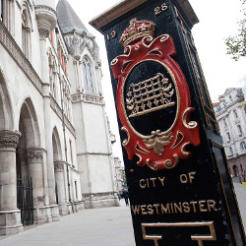Update 12.01pm
This was our contribution to April Fools' Day. As far as Civil Society News is aware the government has no plans to ban grants. At least, we hope not.
The government has launched a consultation on a new funding agreement with the voluntary sector which will scrap all grants given by Whitehall departments and replace them with a system of payment-by-results contracts.
The consultation follows on from a recent proposal to standardise and outsource all government funding for the sector. The Cabinet Office is understood to favour the introduction of a standardised set of impact metrics for all government funding, requiring charities to prove that all their money is being spent on “good causes” and not on back office costs such as rent, telephones, or finance departments, or on campaigning activities which represent their beneficiaries.
“For too long, we have simply given charities money to solve social problems, in the belief that they were best placed to make decisions about how to deal with these issues,” the consultation document says. “There was an assumption that since charities spent all their time talking to and working with beneficiaries, they would know whether the best way to spend money was on staff, or other resources, or campaigning.
“However our belief is this government, with its successful track record of providing succour to the most disadvantaged and vulnerable, is in a much better position to help charities target how they spend their money.”
The document said government had given consideration to whether introducing complicated multi-million pound contracts might lead to bids only by very large commercial providers with extensive balance sheets, rather than the organisations with the knowledge required to do the job. However it said extensive analysis had revealed this scenario to be far-fetched.
“There is no evidence that organisations such as Serco, G4S and A4e are not the best qualified in this country to address intractable social need at a local level,” the document said. “The very idea is ridiculous.”
The document said scandals like Kids Company proved that government, not the sector, was best-qualified to make decisions.
“The idea that we could simply trust external experts to know what they are doing has sadly been proven untrue,” the document said. “Obviously ministers did decide to fund Kids Company to the tune of £40m and more, despite virtually no one thinking it was a good idea. Our view is that this is in no way a failure of internal decision-making, but rather an indication that charities themselves need greater supervision. So we’re giving ministers more control of who gets what money. After all, they did a cracking job on Kids Company. And the Big Society Network, for that matter.”
Possible exemptions
Chancellor George Osborne is understood to have asked for an exemption from the new agreement in order to allow him to continue to hand out Libor money during the Budget speech.
“At the moment the Treasury is operating a robust set of policies,” a government spokesman said. “Grants fall essentially into three categories – charities who will make the Chancellor look good, charities who will make other Conservative MPs look good, and charities whose trustees his wife met at dinner parties.”
Other exemption will also exist for charities which agree to take government money and not tell anyone they have received it.
“We’ve already introduced a system to prevent charities saying anything useful,” the spokesman said. “This is just the next logical step. Why not prevent charities from saying anything at all?
“There is, after all, a reason why the voluntary sector and children’s policy fall under the same minister. In both cases, the Conservative party believes the individuals involved should be seen and not heard.”
Nothing to do with departure of minister
He denied that this belief had led to the downfall of a previous charities minister.
“We do not recognise that the minister himself should be seen but not Hurd,” he said.
Full consultation available
The full consultation will be available here after noon on 1 April.









